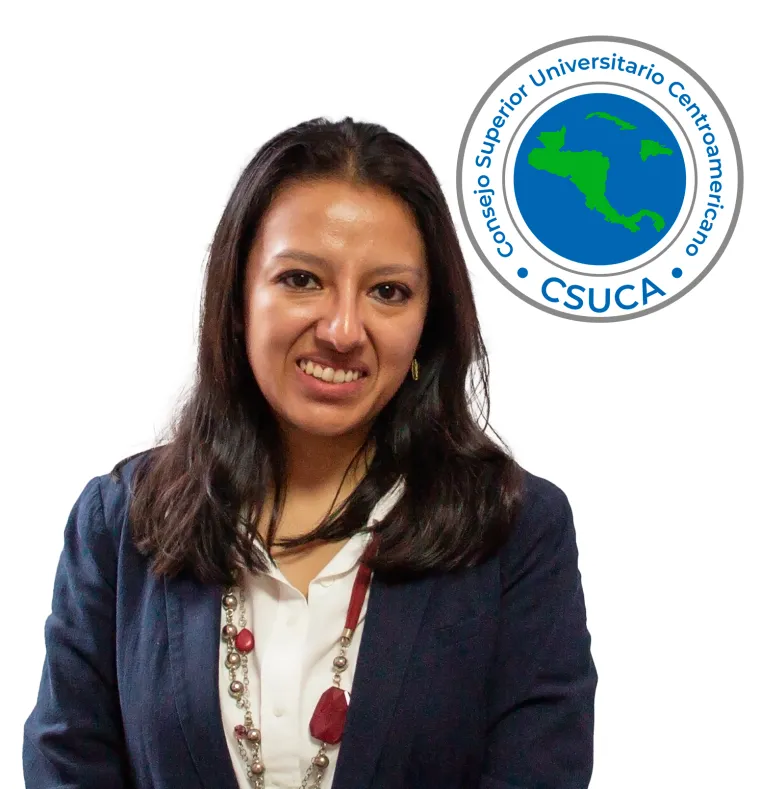María Fernanda Rivas
Maria Fernanda is the Technical-Administrative Assistant for the Latin America and the Caribbean (LAC) Regional Unit at CSUCA. She provides technical assistance with the drafting of calls, terms of reference, and writing of reports, minutes, and correspondence. She also collaborates in the organization of virtual and face-to-face meetings, as well as other activities that contribute to the proper execution of the project and the fulfillment of its objectives.
Maria Fernanda is a Guatemalan Civil Engineer, holder of a master's degree from Hokkaido University (Japan) in Field Engineering for the Environment, with emphasis on Soil Mechanics from the Geotechnical and Materials Engineering for Disaster Prevention Research Group. She also holds a master’s degree in Climate Change and Territorial Management from the National School of Civil Protection, Chiapas, Mexico. Her research interests include risks related to geological and geotechnical processes, as well as the implementation of Nature-based Solutions (NbS) for climate change adaptation and disaster risk reduction from an engineering perspective. She has attended several national and international training programs on these topics.
Maria Fernanda has work experience in the public and private sectors in Guatemala, as well as in academia. She has participated in research and development projects for disaster risk reduction and climate change adaptation, providing technical and administrative support. From 2019 to 2021 she was part of the regional program "Strengthening the Governance of Disaster Risk Management in Central America" implemented by the Central American Higher University Council (CSUCA) and the Coordination Center for Disaster Prevention in Central America and the Dominican Republic (CEPREDENAC) in which, among other goals achieved, the topics of climate change and disaster risk reduction were incorporated in the curricula of several education programs in Central America.

